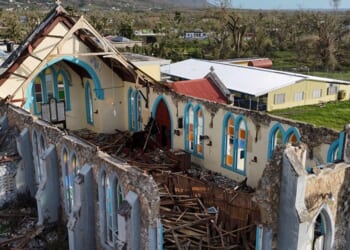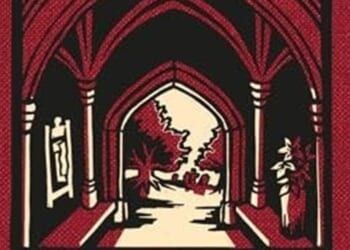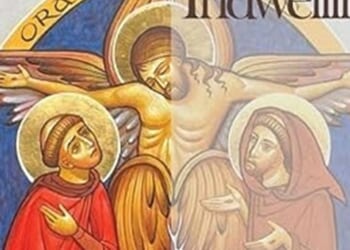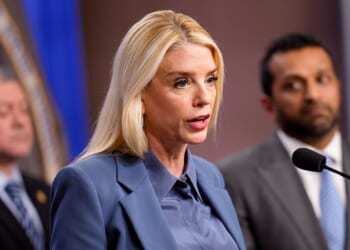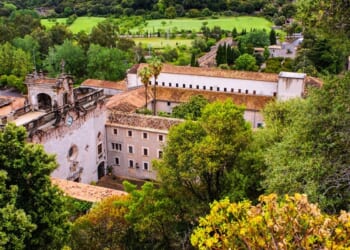I WAS in Exeter, almost unexpectedly. That feeling of sacred time, of being exactly where one is meant to be, hit me like a quiet wave.
I had come to visit my sister, fresh from completing her Ph.D. at the University of Exeter: a celebration, yes, but also a personal pilgrimage; my second visit to this beautiful, historic city. We wandered the cobbled streets, letting the rhythm of the city guide us. And then I noticed a sign: the cathedral was holding a service to install the Rt Revd Moira Astin as the new Bishop of Crediton (News, 6 June). I couldn’t simply walk past. I had to go in.
My nephew and I meandered through old roads, past the Guildhall, slipping into small, quiet churches along the way — empty, perhaps. Yet every space seemed to breathe, to hold the prayers of generations. And then we reached the cathedral.
INSIDE, I was unprepared. The pews were nearly full. A great assembly of robed clergy gathered around the altar. Young altar servers moved with a delicate grace that almost stopped time. Clergy from different denominations were present. Somewhere, a baby cried. The choir sang, and it felt like heaven itself breaking through stone. I remembered the church I longed for: a church alive, present, and tangible across generations.
Bishop Astin’s sermon struck me profoundly. She asked a question that often echoes in my own heart: Who is God to us? Drawing from Moses and the Burning Bush, she spoke of the sacred weight of names, the names we call God by. “The names of God in the Bible show us something of what God is like,” she said. “God’s very essence is relationship. . . We believe in the God who is love.” Her words resonated deeply. Especially for me, a Palestinian Christian watching a world where God’s name is invoked even as violence, hatred, and segregation are carried out in his supposed name.
THAT moment in Exeter collided with a deeply personal season. Ten years have passed since I completed my Master’s degree at Goldsmiths, University of London, and returned home to Palestine: ten years since I last walked these streets. Yet this year also includes the second anniversary of Israel’s ongoing war on Gaza, triggered by Hamas’s attack on southern Israel on 7 October 2023. Slow, relentless horror and genocide.
In that intersection of celebration and sorrow, I felt both lifted and broken.
London, during my studies, had felt like a second home. Now, returning after a decade away, this visit stirred complex emotions. I returned to Goldsmiths University and the streets of New Cross, Brockley, Crofton Park, Honor Oak Park, Ladywell, and Lewisham: the streets that shaped my studies, my life, and my faith. The buildings were the same, but faces had changed. Some structures were new, and I felt both deeply connected and yet curiously distant, like a pilgrim visiting a site now tended by others.
I traced my steps to churches that had cradled my prayers, my hopes, and my despair: St Andrew’s United Reformed Church, Brockley; St Hilda’s, Honor Oak Park; St Mary’s, Lewisham (now under renovation); and St Saviour’s Roman Catholic Church, where an evening liturgy brought voices together in moving harmony.
Ten years ago, many churches in Britain had felt lifeless to me: closed doors, empty pews, ageing congregations, and buildings drained of spirit. This time, I saw stirring life: families again, young voices, singing, questions, and hope. It was subtle, quiet, but unmistakable — and I was grateful to witness it.
It reminded me of home, of Palestine, of my church: ancient, faithful, and resilient; shrinking in numbers, yes, but overflowing in life, in presence, in witness.
IN PALESTINE, churches are more than places of worship. They are community centres: homes for the spirit, guardians of identity, places for Bible studies, youth groups, Scout programmes, choirs, home visits, and lectures on faith. They are spaces for education, humanitarian work, cultural gatherings, and health care. Every generation is present; every soul is seen; every story is held. Our churches contain not only our prayers, but our very history, our identity, our struggle.
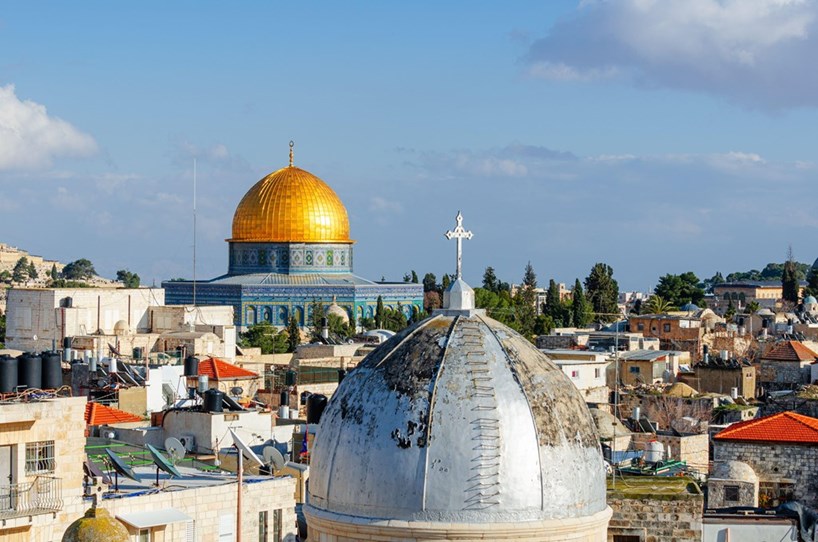 AlamySkyline of the Old City in Jerusalem
AlamySkyline of the Old City in Jerusalem
When I first arrived in the UK and saw emptiness, I grieved. But, this time, I glimpsed resurrection. Even more moving was the solidarity that I encountered. Almost every priest and pastor I spoke with (Anglican, Roman Catholic, Reformed, Baptist) knew about Palestine. Not in passing. Not superficially. They understood. They cared. They spoke with conviction. They asked about Gaza. They named suffering. They questioned the silence. It was as if I had found brothers and sisters in exile. Their presence and their care gave me hope in ways that official statements often could not.
Yet institutional silence remained stark. When Anglican institutions in Gaza (the Al-Ahli Arab Hospital, St Philip’s) were bombed and shelled, only careful, neutral statements emerged: no protest, no prophetic action, no disruption, no confrontation.
What is communion, if it does not include the courage to weep together? to speak truth in the corridors of power?
ON THE streets of London, I saw another witness. Palestinian flags fluttered from windows. Stickers, posters, and messages adorned lamp-posts, buses, and shops. People of every race, every belief — many, Christian — wore keffiyehs, pins, and crosses. On the Tube, in parks, on streets, in pubs, I witnessed courage, compassion, and conviction.
This is the Britain I love: faithful, conscientious, diverse, and resistant. And yet, I wonder: how can a people so conscious be governed by those who arm the oppressor, and who silence the victims and defenders? Is this democracy if voices of justice are drowned by power and corporate interests, and when politicians echo the mighty rather than principle? These questions are not only political: they are spiritual.
TEN years on, I continue to walk between homeland and host land, between memory and movement, heartbreak and hope. I remain proud of my Palestinian Christian identity, our Church, our faith, and our witness — and proud of the British people and churches who are beginning to rise, to listen, and to hope with us.
Despite silence from some bishops, I have heard the cry of the people. Despite the bombs, I have seen candles burning in Gaza’s ruins. Despite exile, I still believe that resurrection is coming, because the Church, if it is the Body of Christ, must be where the wounded are, must stand where the cross stands, and must speak where silence becomes sin. And it must never forget: when one member suffers, all suffer. When one member rejoices, all rejoice.
Jack Nassar is a Palestinian Christian based in Ramallah, Palestine. He holds a Master of Arts degree in political communications from Goldsmiths, University of London, and writes on the Palestine-Israel conflict and its impact. He can be reached at: jacknassar@aol.com













